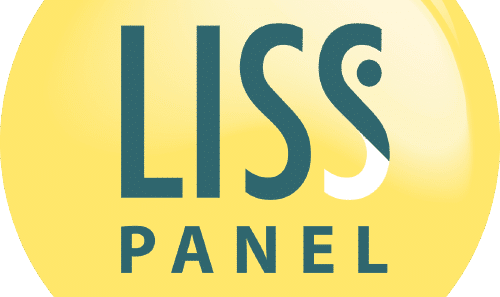The LISS panel Grant call offers financing of data collection via the LISS panel. In the 2022 round of the Call for Proposals we have received 39 applications. In this round both individual and consortium applications were considered. Consortium applications could be submitted on behalf of at least 3 different departments/ organisations and, preferably, 2 or more different disciplines of social sciences. Successful consortia will receive 5 additional minutes of panel time and the questionnaire will be administered to the entire LISS panel. One grant is made available for a project that envisioned extension of the LISS panel Grant project with CBS microdata.
The following 5 projects were awarded in the 2022 round of the LISS panel Grant (in alphabetical order by author).
The division of cognitive labor in the household and its implications for health and labor market outcomes
Weverthon Barbosa Machado (Utrecht University), Dafna Gelbgiser (Tel Aviv University), Andreas Haupt (Karlsruhe Institute of Technology)
Consortium grant
Cognitive labor is an underexplored yet potentially influential dimension of household labor. It refers to a host of mental household tasks, pertaining to the anticipation of needs, identification of options, decision-making, monitoring and management. These cognitive tasks are often invisible to people who perform them and to other family members, have less clear temporal and spatial boundaries, and are hard or impossible to outsource or automate. This project will investigate how couples divide this type of labor in the Netherlands and how this division is associated with health and labor market outcomes.
Impact of changing macro-conditions on social norms and sustainable health behaviors in the Netherlands
Joost Oude Groeniger (Erasmus University Rotterdam), Stefan Lipman (Erasmus University Rotterdam), Kirsten Rohde (Erasmus University Rotterdam), Dorien Beeres (Erasmus MC)
Consortium grant
Increased visibility of the climate crisis, high food and energy prices and loss of purchasing power are external factors impacting society. They also reflect the upcoming transitions in our food system, energy system and mobility system needed to move towards a sustainable society. These transitions are closely linked to sustainable health behaviors, through the food we buy and the way we travel. This project will study how experiences of changing macro-conditions relate to social norms about, and the adoption of, two sustainable health behaviors: reduced meat consumption, reduced car use.
Inclusive democratic decision-making: support for democratic innovations among underrepresented citizens.
Take Sipma (Tilburg University), Niels Spierings (Radboud University), Kristof Jacobs (Radboud University), Josje den Ridder (The Netherlands Institute for Social Research (SCP)
Consortium grant
A key value of democratic governance is the inclusion of people with various backgrounds, beliefs, and interests; however in our democracy various societal groups feel left out. Democratic innovations, such as minipublics and referendums, are proposed to improve the inclusiveness of democratic processes. Yet it remains to be seen whether people who feel underrepresented actually support such innovations. So far, no studies have examined to what extent minorities in particular think about democratic innovations. Do they support them? Also if they are ‘majority instruments’? Will they participate? And why (not)? Questions that cannot be answered with existing data.
Perceptions of Inequality and Fiscal Policy Preferences
Oda Sund (University of Amsterdam), Thomas Douenne (University of Amsterdam), Joël van der Weele (University of Amsterdam)
Individual grant. This project was awarded an extension with the CBS microdata linkage.
The aim of this study is to improve our understanding of citizens’ perception of inequalities in two specific ways: i) by documenting whether citizens hold accurate beliefs about wealth and income inequality (including their own relative position) and how they perceive the role of merit and luck play in determining such inequality, and ii) by causally identifying the impact of these variables on citizens’ inequality acceptance and preferences for redistribution. Combining survey data with high quality administrative data we are able to exploit both experimental and quasi-experimental variations–providing causal evidence with high relevance for public policy.
The Bridging Power of Civic Organizations and Neighborhoods
Jochem Tolsma (Radboud University), Dingeman Wiertz (University College London), Kasimir Dederichs (University of Oxford)
Individual grant
Segregation is a pervasive phenomenon that limits intergroup contact and may undermine social cohesion, reinforce inequalities, and give rise to polarization. Our data collection aims to advance our understanding of (the drivers of) social segregation in two different settings – civic organisations and neighborhoods – to identify opportunities and obstacles for intergroup contact. Firstly, we collect rich data about people’s involvement in civic organisations, examining social sorting across and within civic organisations, and along multiple social dimensions. Secondly, we conduct innovative choice experiments to analyze to what extent different social groups embrace or avoid social diversity when choosing civic organisations or neighborhoods.
The reviewers in this round were: Laura Boeschoten, Marion Collewet, Giedo Jansen, Willem de Koster, and Florian van den Leeuwen.
Relevant links:
- LISS panel Access
- Read more about the LISS Panel Grant recipients of 2021, 2020, 2019, 2018 and the corona grants here and here
